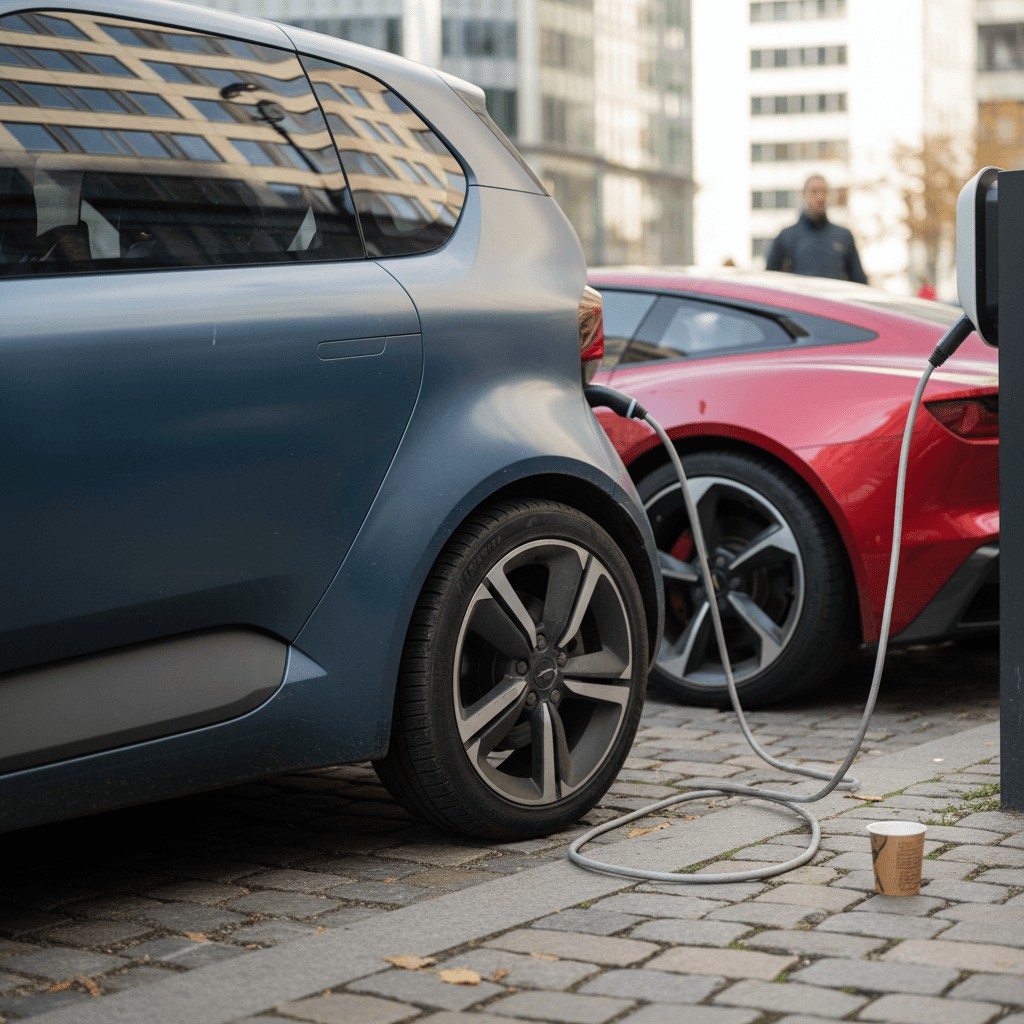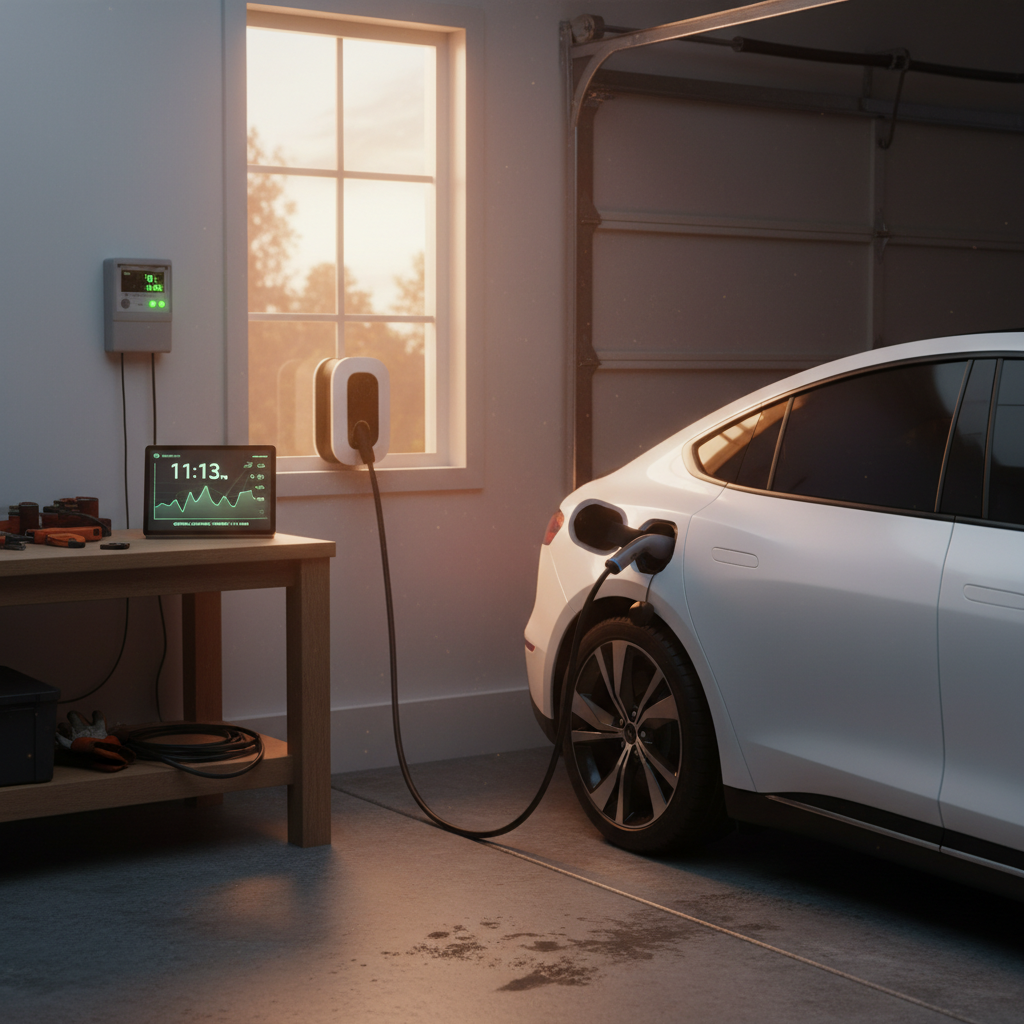Search for “enterprise cars for sale” on any given Tuesday in America and you’ll find acres of nearly new cars lined up like shampoo bottles at Costco, low miles, clean CarFax, prices that undercut the dealer down the street. It looks like free money. The question is whether those ex‑rental deals are actually smart, especially now that EVs have joined the rental fleets and are quietly slipping into the used market.
Quick take
Why “Enterprise cars for sale” are everywhere in 2025
Rental giants like Enterprise, Avis and Hertz buy vehicles by the tens of thousands, then cycle them out of service after a couple of years. Those cars have to go somewhere. Increasingly, they go straight to consumers instead of auctions. Enterprise Car Sales alone runs dozens of retail locations plus a national online inventory of used cars, trucks, SUVs, hybrids and EVs, all marketed with no‑haggle pricing and a short return window.
Ex‑rental cars in today’s used market
For you, that means searching for Enterprise cars for sale isn’t just about Enterprise itself. It’s shorthand for a whole category: former rental and fleet vehicles being sold direct by the companies that owned them. The experience lives somewhere between a traditional used‑car lot and a fully digital marketplace like Recharged’s online EV store.

How Enterprise Car Sales and other fleet programs work
Enterprise’s answer to “Do you sell vehicles?” is simple: yes. Enterprise Car Sales offers a wide range of former rentals plus some off‑lease and trade‑ins, all funneled through a retail channel with fixed pricing, financing options and a 7‑day buyback policy. Hertz Car Sales, Avis Car Sales and others run similar programs, increasingly with fully online checkout and home delivery.
What happens before a rental car hits the sales lot
Behind every Enterprise car for sale is a paper trail of corporate logistics.
1. Fleet selection
2. In‑service life
3. De‑fleet & certify
Where EVs fit in
The upsides: Pros of buying Enterprise cars for sale
Former rentals aren’t the boogeymen they used to be. In some respects, they’re better bets than mystery‑history private‑party cars. Here’s where Enterprise cars for sale can shine.
Key advantages of ex‑rental cars
Consistent maintenance history
Rental fleets live and die by uptime. Oil changes, brake service and inspections tend to happen on schedule, with records. That’s more than you can say for many privately owned cars.
Late‑model with modern tech
Fleet vehicles are usually only a few years old, so you get up‑to‑date safety features, infotainment and driver‑assist tech without paying new‑car money.
No‑haggle pricing
Enterprise Car Sales and similar programs publish fixed prices. If you hate four‑square negotiations and mystery fees, this is a welcome dose of sanity.
Short return window
Enterprise typically offers a 7‑day/1,000‑mile buyback period. That lets you live with the car for a week and bail out if something feels off.
Basic reconditioning and warranty
Cars sold through Enterprise come inspected by ASE‑certified technicians and usually include a limited powertrain warranty and roadside assistance for the first year.
National inventory & transfers
If the exact car you want is sitting two states away, Enterprise can often transfer it to your local store, similar to how <a href="/articles/how-recharged-delivery-works">Recharged ships EVs nationwide</a>.
When the math works in your favor
The downsides: Risks of former rental cars
Of course, there’s a reason “rental car” still makes some shoppers twitch. With Enterprise cars for sale, you’re inheriting not just maintenance discipline but also the collective driving habits of hundreds of strangers.
- Hard miles. Rentals rack up highway and city miles quickly, and some drivers treat the accelerator like an on/off switch. The odometer doesn’t capture every brutal cold start or curb strike.
- Higher mileage for the age. A two‑year‑old ex‑rental with 35,000 miles will feel like a bargain next to a one‑owner car with 18,000 miles, but mileage still matters for long‑term wear and resale.
- Basic spec levels. Fleets buy what’s easy to rent and easy to clean, not what makes your heart sing. Expect cloth seats, mid trims and sensible colors, not the fully loaded launch‑edition unicorn.
- Cosmetic wear. Dings, scrapes and interior scuffs are common. The good news: cosmetic flaws are bargaining chips anywhere outside strict no‑haggle programs; the bad news: they’re your problem after you sign.
- Lower resale value later. The phrase “former rental” on a vehicle history report still spooks plenty of buyers. You might save on purchase and give some of it back when you go to sell.
Don’t skip the test drive
Special considerations for used electric rentals
The rental industry’s short, turbulent relationship with EVs means more electric Enterprise cars for sale and similar fleet EVs are entering the used market. That’s a chance to scoop up a bargain, or a way to accidentally buy someone else’s science experiment.

Why ex‑rental EVs can be great buys
- Heavily discounted: Some rental fleets are off‑loading EVs after underestimating repair costs or overestimating demand, which can push used prices down.
- Fast‑charge experience: Fleet EVs often lived on DC fast charging, which is rougher on batteries but proves the car can handle real‑world road‑trip duty.
- Up‑to‑date software: Frequent use and service means many rental EVs stayed current on firmware updates and recalls.
What can go wrong with ex‑rental EVs
- Battery degradation: Heavy DC fast‑charging and high‑mileage city use can shave usable range. A “good deal” that’s lost 15–20% of its range may not fit your life.
- Charging‑port abuse: Rental customers are not known for their gentle cable etiquette. Inspect the charge port and connector closely.
- Unknown charging patterns: You won’t know if the car lived at 100% charge, which can accelerate degradation if the pack sat hot for long periods.
Battery health is the whole ballgame
Unlike most rental‑fleet programs, every EV sold through Recharged gets a deep‑dive battery diagnostic, fair‑market pricing analysis and expert guidance about how that specific pack will age. If you’re tempted by a cheap ex‑rental EV, use that as a benchmark for what a transparent battery report should look like.
Enterprise vs. traditional dealers and online marketplaces
Shoppers searching for Enterprise cars for sale are usually trying to avoid something, endless dealer haggling, sketchy private‑party transactions, opaque online sellers. It helps to put the major options on the same playing field.
Where to buy: ex‑rental vs. dealer vs. EV specialist
How Enterprise Car Sales compares with a traditional used‑car dealer and an EV‑focused marketplace like Recharged.
| Buying channel | Typical vehicle history | Pricing style | Inspection & warranty | Best for |
|---|---|---|---|---|
| Enterprise / rental fleet store | Mostly former rentals; some off‑lease and trade‑ins | No‑haggle, mid‑market | In‑house inspection, short powertrain warranty, short buyback window | Value hunters who hate negotiating and want late‑model mainstream vehicles |
| Traditional used‑car dealer | Trade‑ins, auctions, occasional fleet vehicles | Negotiable, can range from bargains to eyebrow‑raising | Varies wildly; some certified programs are excellent, others minimal | Shoppers who enjoy haggling and want maximum choice, including oddball trims |
| EV‑focused marketplace (Recharged) | Used EVs only, curated and scored for battery health | Fair‑market, data‑driven, with financing options | Specialized battery diagnostics, EV‑specific inspection, expert support end‑to‑end | Buyers prioritizing a used EV with verified range, transparent pricing and digital convenience |
Use this as a framework; exact policies vary by seller.
Play the channels off each other
How to shop Enterprise cars for sale, step by step
Whether you’re scrolling Enterprise’s website or browsing another fleet‑sales program, the process is more structured than Craigslist but less hand‑holding than a luxury dealer. Here’s a practical sequence that works.
Step‑by‑step game plan
1. Define how long you’ll keep the car
If you tend to own cars for 8–10 years, lower resale value later matters less. If you flip every 3–4 years, you may want something with cleaner history than “former rental.”
2. Benchmark prices across channels
Pull up Enterprise cars for sale, a few local dealer listings, and, if you’re EV‑curious, used EVs on Recharged. Look at out‑the‑door prices, not just stickers.
3. Filter ruthlessly
Stick to mainstream models with strong reliability records. Avoid oddball trims where parts or repair knowledge might be scarce.
4. Scrutinize the history report
Look for repeated damage entries, structural repairs or long gaps in service. “Rental vehicle” alone isn’t a red flag; the surrounding story is what matters.
5. Inspect like a pessimist
On the lot, check tire wear, paint consistency, panel gaps and interior wear. Many rentals lead hard lives; you want the ones that don’t obviously show it.
6. Test drive with a purpose
Turn off the radio. Find bad pavement. Try highway merges and panic‑stop‑level braking. For EVs, note real‑world consumption and estimate usable range.
7. Run the financing options
Enterprise and others can arrange loans, but they’re not the only game in town. Compare offers from your bank, credit union and online lenders. If you’re looking at a used EV, you can also <a href="/articles/ev-financing-guide">pre‑qualify through Recharged</a> with no impact on your credit.
8. Use the return window
If you buy from Enterprise, treat the 7‑day/1,000‑mile buyback as an extended test drive. Commute, run errands, park in your usual garage. If it doesn’t fit, return it.
When an ex‑rental is (and isn’t) a good idea
Good candidates for Enterprise cars for sale
- High‑mileage commuters: You rack up 15,000+ miles a year and plan to run the car deep into six figures anyway.
- Budget‑first buyers: Upfront price and monthly payment matter more than squeezing top dollar at resale.
- Practical family haulers: You want a clean, late‑model minivan or SUV with modern safety tech, not an enthusiast toy.
- First‑time EV shoppers: You’ll consider an ex‑rental EV but only with a clear battery‑health picture from a trusted report, whether that’s from the seller or a third‑party inspection.
When to walk away from ex‑rental deals
- You care deeply about resale value: If your plan is to trade up in three years, a “former rental” flag on the title will work against you.
- You’re picky about specs: If a specific color/trim/drivetrain combo is non‑negotiable, fleet cars will frustrate you.
- You want something special: Enthusiast models, performance trims and rare options almost never come from fleet sales. Look to private owners or specialty dealers.
- The EV’s range is marginal for your life: If a used rental EV can barely cover your worst‑case day with a buffer, don’t count on it aging gracefully into your needs.
A simple rule of thumb
FAQ: Enterprise cars for sale and rental fleet vehicles
Frequently asked questions about Enterprise cars for sale
Wrap‑up: Should you buy an Enterprise car?
Enterprise cars for sale, and ex‑rental cars in general, are neither miracle bargains nor lemons by definition. They’re tools: mass‑produced, hard‑working appliances that can make a ton of sense if you value price, predictability and late‑model safety over romance and resale theater.
If you’re the sort of driver who racks up miles and keeps cars until they’re dog‑eared, an ex‑rental from Enterprise or another fleet program can be a rational, even elegant choice. Just do the homework: compare channels, scrutinize history reports, test drive with prejudice and take full advantage of any return window.
If you’re leaning toward an EV, or already shopping used electric Enterprise cars for sale, that’s where you’ll want extra help. This is exactly the gap Recharged exists to fill: verified battery health, transparent pricing, expert EV‑only guidance and a digital buying process that feels more 2025 than 2005. Use the fleet programs as a reference point, then choose the path that best fits how you really drive, and how long you plan to keep the car.



